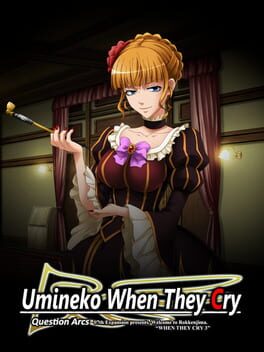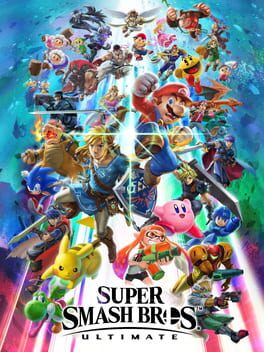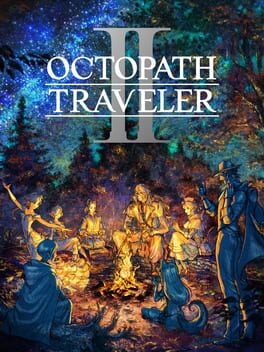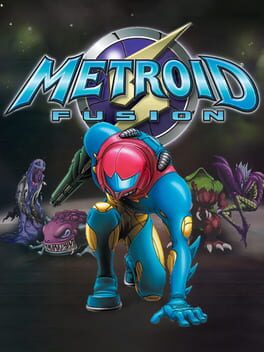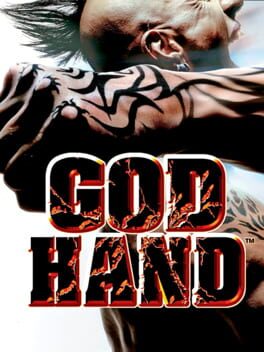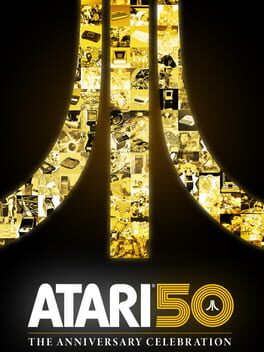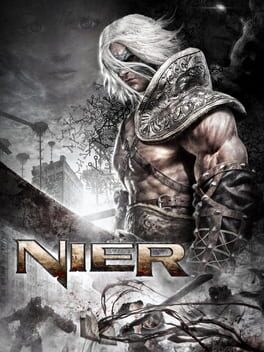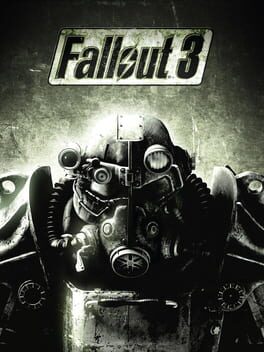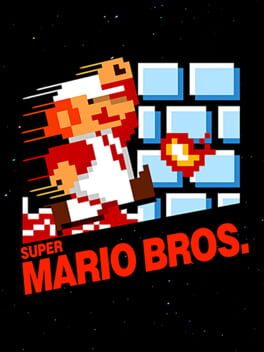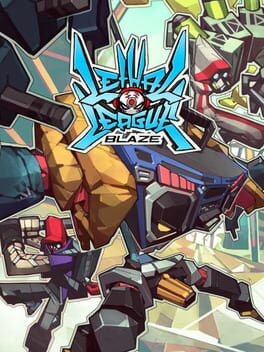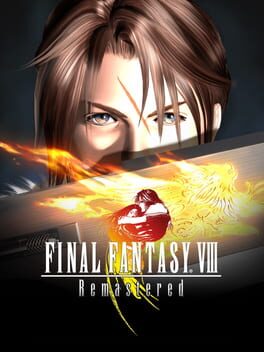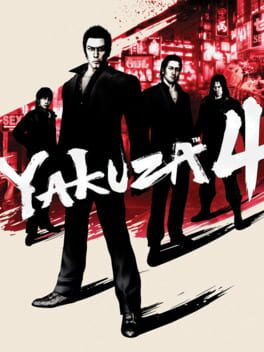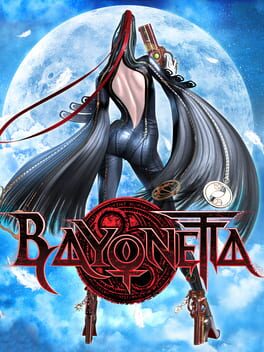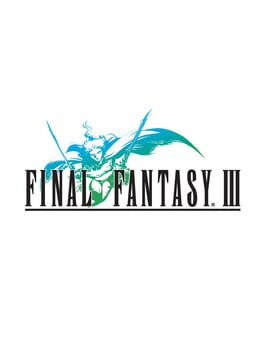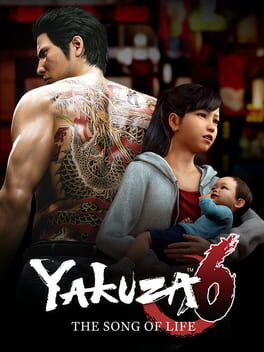VideoGameTim
BACKER
While it feels a bit odd to review at this point considering it's only half the story, I'll keep it brief since it's hard to talk about without spoilers anyways.
Umineko so far has been a fantastic and unsettling murder mystery of sorts full of horrible people, great detail/world-building, and an immense build-up over the four chapters in this 'Questions Arc'. It is disturbing in many different aspects whether it's through descriptions of gore or various emotional struggles, while also being contrasted by numerous absurd and even silly moments. It has provided me with countless ideas to ponder as the true mysteries slowly unravel themselves, and I have constantly been unsure of what will happen next.
I've docked half a star only because it loses the pacing a little bit towards the climax of this first half, but I am absolutely excited to read more.
Umineko so far has been a fantastic and unsettling murder mystery of sorts full of horrible people, great detail/world-building, and an immense build-up over the four chapters in this 'Questions Arc'. It is disturbing in many different aspects whether it's through descriptions of gore or various emotional struggles, while also being contrasted by numerous absurd and even silly moments. It has provided me with countless ideas to ponder as the true mysteries slowly unravel themselves, and I have constantly been unsure of what will happen next.
I've docked half a star only because it loses the pacing a little bit towards the climax of this first half, but I am absolutely excited to read more.
There are a lot of things I could say about Ultimate, but I think the most important thing to remember is that it is an incredible collection of fighting game content. There are a ton of characters, stages (with 3 variants of each!), and songs to choose from. Sakurai has gone to even greater lengths to ensure that this game can be enjoyed by players of any inclination. Whether you like to play with stocks or stamina, or if you wanna use all items/no items/whichever items you like, there’s probably a rule setting for you. This is finally the Smash game that has gotten me interested in the competitive side, fighting one on one without items and as such I have an appreciation for it now. New characters like Incineroar, Simon/Richter, and K. Rool are a blast to play, and characters I missed in Smash 4 like Corrin, Ryu, Cloud, and Duck Hunt have been a blast too. The game has really rekindled my enjoyment of the series and I’m trying all sorts of characters I never would’ve before. I would be totally okay if this was the last Super Smash Bros. game, and I am in utter awe of the fantastic picks that were brought forth with the DLC characters.
2023
While the first Octopath Traveler wasn't perfect, I thought it was a wonderful little game. The introduction of the HD-2D style, 8 little contained stories with a couple of memorable characters, a good soundtrack, and a fairly satisfying turn-based combat system. Octopath Traveler 2 improves vastly upon its predecessor in every conceivable way.
The game takes place in Solistia, a country split across two continents. Similar to the first game, you pick a starting character to serve as your MC, and wander around the world picking up your other party members and experiencing their stories. The major criticism that many people levied against the first game was the lack of party interaction. There were brief little scenes you could see if you went out of your way to watch them at taverns, but they didn't really feel connected to each other for 99% of the game. In OT2, most major story beats will have a set of banter scenes you can view depending who is in your party (and all of them are available to watch through the menu). During battle, when a party member breaks an enemy, there is also a high chance that the next party member up to attack will directly compliment them for it. Additionally, there are four pairings of the main characters who have their own little side stories together. These extra little scenes, interactions, and scenarios really help the party feel closer to each other.
From a gameplay perspective, the major new addition is the day/night system. Different enemies, different party effects, different NPCs, and even different music(!) take effect depending on the time of day, and this is brilliantly tied to the push of a button so you can freely toggle it at any time. The combat is largely the same as in the first game, complete with a job system to mix and match to your preferences. There are some other pleasant surprises too that you will come across during your travels from dungeons, to job guilds, to COUNTLESS major cities and towns that truly reward your exploration.
One other key bit of gameplay that I'd like to touch on is the design of the side quests. Each NPC that has a side quest is marked on your map, however no markers are made as to the objectives themselves. The player must use the quest givers descriptions, or often context given by nearby NPCs for hints on where you can go to complete it. While a handful of them were obtuse enough that I looked up a guide, I ended up actually taking notes to remember who wanted what and where I could potentially find it. It was honestly refreshing to have a reason to do something like that again, which made me want to complete as many of them as I could.
This game also features yet another incredible OST and since every area features a day/night version of each song, I have no doubt it's their longest. One final improvement over the original I would like to highlight is the characters. Each and every one of them is memorable and goes through a unique and fairly developed story with different stakes. They are all special in their own way, and even the one I felt goes a little too far off the deep end still ends up being really cool and memorable in its own way.
For fans of the turn-based genre, Octopath Traveler 2 is absolutely worth your time. I only left a couple of major things left undone, but my final playtime clocked in around 75 hours so there is a LOT of meat to the game. I hope they get to keep making these and maybe shake things up again in an OT3 down the road.
The game takes place in Solistia, a country split across two continents. Similar to the first game, you pick a starting character to serve as your MC, and wander around the world picking up your other party members and experiencing their stories. The major criticism that many people levied against the first game was the lack of party interaction. There were brief little scenes you could see if you went out of your way to watch them at taverns, but they didn't really feel connected to each other for 99% of the game. In OT2, most major story beats will have a set of banter scenes you can view depending who is in your party (and all of them are available to watch through the menu). During battle, when a party member breaks an enemy, there is also a high chance that the next party member up to attack will directly compliment them for it. Additionally, there are four pairings of the main characters who have their own little side stories together. These extra little scenes, interactions, and scenarios really help the party feel closer to each other.
From a gameplay perspective, the major new addition is the day/night system. Different enemies, different party effects, different NPCs, and even different music(!) take effect depending on the time of day, and this is brilliantly tied to the push of a button so you can freely toggle it at any time. The combat is largely the same as in the first game, complete with a job system to mix and match to your preferences. There are some other pleasant surprises too that you will come across during your travels from dungeons, to job guilds, to COUNTLESS major cities and towns that truly reward your exploration.
One other key bit of gameplay that I'd like to touch on is the design of the side quests. Each NPC that has a side quest is marked on your map, however no markers are made as to the objectives themselves. The player must use the quest givers descriptions, or often context given by nearby NPCs for hints on where you can go to complete it. While a handful of them were obtuse enough that I looked up a guide, I ended up actually taking notes to remember who wanted what and where I could potentially find it. It was honestly refreshing to have a reason to do something like that again, which made me want to complete as many of them as I could.
This game also features yet another incredible OST and since every area features a day/night version of each song, I have no doubt it's their longest. One final improvement over the original I would like to highlight is the characters. Each and every one of them is memorable and goes through a unique and fairly developed story with different stakes. They are all special in their own way, and even the one I felt goes a little too far off the deep end still ends up being really cool and memorable in its own way.
For fans of the turn-based genre, Octopath Traveler 2 is absolutely worth your time. I only left a couple of major things left undone, but my final playtime clocked in around 75 hours so there is a LOT of meat to the game. I hope they get to keep making these and maybe shake things up again in an OT3 down the road.
2002
2006
Atari 50 is a fantastic compilation of Atari games throughout the years, from the arcade, to the 2600, to the Jaguar, and everything inbetween. As you go through the timelines you get to try out tons of classic games, sprinkled with high-resolution scans of manuals, print ads, and interviews from key Atari and other game industry personnel.
As far as game compilations go this is certainly one of the best ones out there, even if quite a lot of the games don't hold up well (if they ever were in the first place). It would have been nice to have some more famous titles as particularly licensed ones (such as E.T.) are absent, but with the quantity and even new creations it's hard to really complain. Especially when none of the games in the collection are half as bad as the penultimate interview, being several minutes with the creator of Ready Player One.
As far as game compilations go this is certainly one of the best ones out there, even if quite a lot of the games don't hold up well (if they ever were in the first place). It would have been nice to have some more famous titles as particularly licensed ones (such as E.T.) are absent, but with the quantity and even new creations it's hard to really complain. Especially when none of the games in the collection are half as bad as the penultimate interview, being several minutes with the creator of Ready Player One.
2010
2008
1985
2018
There are a number of long-running media series out there that inevitably have that entry that sets a new bar. The big blockbuster that is so earth-shattering, you have to wonder how the creators could possibly follow it up. Putting my own feelings of FFVII aside, no one could possibly deny that FFVIII had a herculean task to follow that up. The new shift in focus and mechanics featured in FFVIII would not be for everybody, but boy were they for me.
FF8 focuses on a group of teenage soldiers who are being raised and trained to become "SeeD"s, highly elite soldiers for their respective "Garden"s to go off and fight in whatever contracts their Garden chooses to take. They make use of Guardian Forces (GFs) which serve as their summons, and slowly over time learn more about the world around them. There are a lot of parallels here to another more recent game I care very dearly for, and fans of Xenoblade Chronicles 3 should probably be giving this game a go.
As you may have guessed, FF8 does lay out the anti-war sentiment as many of their games do, but here it serves as more of a backdrop for a much more personal message. More so than (most) other FF games, FF8 is highly centred around its main character. Squall is a distant, awkward kid who ends up having a lot of trust and responsibility thrust upon him. Over the course of the game, he learns more and more about himself and how he handles a lot of difficult situations. It is not an exaggeration for me to say that Squall's whole story arc is a big driving factor behind my 5-star rating here. He is very much a love-him-or-hate-him type of MC, but he REALLY hit that note for me.
As for locations, the game has a ton of really varied and expansive towns and cities to explore. The dungeons are all really unique and varied (you go into a cave like once), and the final dungeon in particular is one of the coolest I have ever played through in an RPG.
Another big divisive part of FF8 and its core identifying feature is the Junctioning system. To equip skills, you "Junction" a GF to that party member, and that allows them to not only choose if they can use items, magic, summon, etc. but also attach magic to their stats to buff them up. There's quite a few little nuances to this that can easily turn someone off if they don't fully understand it, but I thought it was VERY satisfying once it clicks and you're able to do all sorts of broken shit to your liking. Enemy weak to ice? Then junction blizzaga to your elemental attack and go to town. Enemy deals a ton of AOE physical damage? Then junction Blind to your status attack and make it so just hitting them will apply the debuff. There really is a lot you can do with it, and there's no shortage of items and optional content you can go crazy with. In particular, FF8 also introduced my beloved Triple Triad card game which allows you to collect (or lose) cards of all the monsters and bosses in the game. It's pretty addicting, and there are a ton of rule modifiers to mix it up. The cards can even be refined into items, so they are worth collecting from a gameplay standpoint too.
FF8 also just might be the best looking game to come out for the PS1. The gorgeous hand-painted backgrounds (like in FF7) are now populated with realistic-looking character models, and the detail is staggering. There are a number of moments where the game transitions into pre-rendered cutscenes while you are playing some of the more cinematic moments, and it's really really impressive the amount of detail and animation quality they were able to get out of PS1 hardware.
One last thing I would like to mention, in a series of amazing OSTs, FF8 is one of the best. The mix of chill, strange, and hype themes for different locations and moments makes for the perfect atmosphere to drive home the messages of the game. I really can't speak highly enough of Final Fantasy VIII here, and it definitely sits among my favourites.
FF8 focuses on a group of teenage soldiers who are being raised and trained to become "SeeD"s, highly elite soldiers for their respective "Garden"s to go off and fight in whatever contracts their Garden chooses to take. They make use of Guardian Forces (GFs) which serve as their summons, and slowly over time learn more about the world around them. There are a lot of parallels here to another more recent game I care very dearly for, and fans of Xenoblade Chronicles 3 should probably be giving this game a go.
As you may have guessed, FF8 does lay out the anti-war sentiment as many of their games do, but here it serves as more of a backdrop for a much more personal message. More so than (most) other FF games, FF8 is highly centred around its main character. Squall is a distant, awkward kid who ends up having a lot of trust and responsibility thrust upon him. Over the course of the game, he learns more and more about himself and how he handles a lot of difficult situations. It is not an exaggeration for me to say that Squall's whole story arc is a big driving factor behind my 5-star rating here. He is very much a love-him-or-hate-him type of MC, but he REALLY hit that note for me.
As for locations, the game has a ton of really varied and expansive towns and cities to explore. The dungeons are all really unique and varied (you go into a cave like once), and the final dungeon in particular is one of the coolest I have ever played through in an RPG.
Another big divisive part of FF8 and its core identifying feature is the Junctioning system. To equip skills, you "Junction" a GF to that party member, and that allows them to not only choose if they can use items, magic, summon, etc. but also attach magic to their stats to buff them up. There's quite a few little nuances to this that can easily turn someone off if they don't fully understand it, but I thought it was VERY satisfying once it clicks and you're able to do all sorts of broken shit to your liking. Enemy weak to ice? Then junction blizzaga to your elemental attack and go to town. Enemy deals a ton of AOE physical damage? Then junction Blind to your status attack and make it so just hitting them will apply the debuff. There really is a lot you can do with it, and there's no shortage of items and optional content you can go crazy with. In particular, FF8 also introduced my beloved Triple Triad card game which allows you to collect (or lose) cards of all the monsters and bosses in the game. It's pretty addicting, and there are a ton of rule modifiers to mix it up. The cards can even be refined into items, so they are worth collecting from a gameplay standpoint too.
FF8 also just might be the best looking game to come out for the PS1. The gorgeous hand-painted backgrounds (like in FF7) are now populated with realistic-looking character models, and the detail is staggering. There are a number of moments where the game transitions into pre-rendered cutscenes while you are playing some of the more cinematic moments, and it's really really impressive the amount of detail and animation quality they were able to get out of PS1 hardware.
One last thing I would like to mention, in a series of amazing OSTs, FF8 is one of the best. The mix of chill, strange, and hype themes for different locations and moments makes for the perfect atmosphere to drive home the messages of the game. I really can't speak highly enough of Final Fantasy VIII here, and it definitely sits among my favourites.
2010
2009
2006
It's tough for me to really judge how I feel about a game like this so far removed from the timeframe that it released. That being said, it's certainly impressive how much FFIII had going on. A large sprawling world map to explore in your airship, the first iteration of the job system, and tons of optional hidden content. This is also the 3D remake of the original game and no doubt a lot of QoL was implemented and things were improved or changed, but it is still a little rough around the edges.
The game can be a little obtuse at times, but you do get some direction either from talking to townspeople or a main character mentioning what your next goal should be. This being the first implementation of it, I found you also don't often have to interact with the job system. There are a couple of times where a thief or a dragoon is necessary (or ideal) to progress, but for the most part I picked the jobs I liked and used them through the whole game. It seems optimal to do so too unless you want to grind, as the higher the job level, the better off you are.
Regardless, it was still pretty cool to see where FFXIV pulled a lot of its inspiration from. The crystal tower, doga/unei, the cloud/world of darkness, and even some of the music; speaking of which, its a pretty good soundtrack that didn't get too tiring after 20 or so hours.
All in all, FFIII is a solid package that I could definitely recommend if you're curious about the roots of the franchise - just prepared for nothing too mind-blowing by today's standards.
The game can be a little obtuse at times, but you do get some direction either from talking to townspeople or a main character mentioning what your next goal should be. This being the first implementation of it, I found you also don't often have to interact with the job system. There are a couple of times where a thief or a dragoon is necessary (or ideal) to progress, but for the most part I picked the jobs I liked and used them through the whole game. It seems optimal to do so too unless you want to grind, as the higher the job level, the better off you are.
Regardless, it was still pretty cool to see where FFXIV pulled a lot of its inspiration from. The crystal tower, doga/unei, the cloud/world of darkness, and even some of the music; speaking of which, its a pretty good soundtrack that didn't get too tiring after 20 or so hours.
All in all, FFIII is a solid package that I could definitely recommend if you're curious about the roots of the franchise - just prepared for nothing too mind-blowing by today's standards.
The end of the Kiryu saga. While it doesn't quite reach the heights of 0 or 4 to me, the new engine was a much needed breath of fresh air for the series, and Onomichi is a wonderful location. The story is just the right amount of insane that I have really come to love and enjoy from the series, and its a good sendoff before the new era of Yakuza begins.
